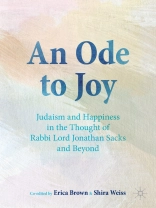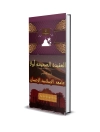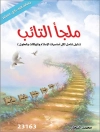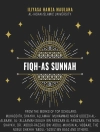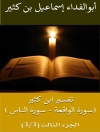Before his rather sudden passing in 2020, Rabbi Lord Jonathan Sacks was one of the most eloquent and influential religious leaders of the generation. As Chief Rabbi of the United Hebrew Congregations of the Commonwealth for over two decades, he offered a universal message cultivated from the Jewish and Western cannons he knew so well. One concept that figured prominently in his work was joy. “I think of Judaism as an ode to joy, ” he once wrote. “Like Beethoven, Jews have known suffering, isolation, hardship, and rejection, yet they never lacked the religious courage to rejoice.” In this volume, organized by the Rabbi Lord Jonathan Sacks-Herenstein Center for Values and Leadership, academics and writers explore the significance of joy within the Jewish tradition. These essays and reflections discuss traditional Jewish primary sources, including Biblical, Rabbinic and Hebrew literature, Jewish history and philosophy, education, the arts, and positive psychology, and of course, throughthe prism of Lord Sacks’ work.
สารบัญ
1 Introduction.- Part I Personal Reflections: Rabbi Sacks and Joy.- 2 Rabbi Sacks and Joy: A Personal Reflection.- 3 Joy as Challenge: Personal Reflections on Working with Rabbi Sacks.- 4 Beethoven’s Last Sonata.- 5 The Language of the Soul.- Part II Joy in the Bible.- 6 “What Good Is That?” Happiness and the Emotional Range of Ecclesiastes.- 7 Joy to Shushan: The Book of Esther’s Radical Cocktail of Happiness.- 8 Odes to Joy in Sonnets and Psalms.- 9 Flowing with Joy.- 10 Joy and Trembling.- Part III Joy in Rabbinic Literature.- 11 Reflections on the Human Experience of Joy.- 12 All for the Best: Rabbi Akiva’s Theodicy of Joy.- 13 Inclusive Joy: On Maimonides’ Definition of Meaningful Happiness.- 14 Show Me Those Pearly Whites: Divine and Human Smiling.- 15 Bright Yellow Judaism.- 16
Simha Shel Mitzvah: The Commandment of Joy, or the Joy of a Commandment?.- 17 Finding Happiness in the Transience of Sukkot.- Part IV Joy in Legal Thought.- 18 Law’s Joy: Celebrating the Study and Practice of Law.- 19 Joy as a Legal Metaphor.- 20 Emotion, Connection, and Motion: Deploying Positive and Negative Emotions in Conflict Resolution.- Part V Joy in Jewish Philosophy and Kabbalah.- 21 Happiness and Joy: Rabbi Sacks’ Dialogue of Athens and Jerusalem.- 22 Crescas and Rabbi Sacks on Happiness and Joy.- 23 Standing Before God in Joy and Fear.- 24 Joys, Oys, and the Pursuit of Happiness.- 25 Affirming Life in Joy Across the Divinity Divide: Rabbi Jonathan Sacks and Friedrich Nietzsche.- 26 Sacks on Sisyphus and Soloveitchik: From Myth to Meaning.- 27 “I Will Tell You How Once They Were Joyous”: On the Joy of the Baal Shem Tov’s Hasidim and of R. Nahman of Bratslav.- Part VI Joy in Jewish History and Modernity.- 28 Happy Alone or Happy Together? R. Jonathan Sacks, Contemporary Culture, and the Promise of Hope.- 29 Joy and Judaism at the Battle of Bunker Hill.- 30 Joy in the Interfaith Encounter.- Part VII Joy in Hebrew Literature and Prayer.- 31 Joy, Sorrow, and Emotional Equilibrium in Agnon.- 32 The Joy of Ordinary Living.- 33 Celebrating the Good Through the
Sheheheyanu Blessing.- 34
Ashrei Yoshvei Veitekha: Joy in the Ancient Synagogue.- 35 The Music Beneath the Noise: Faith and Joy in the Writings of Rabbi Sacks.- 36 Expressing the Inexpressible: Rabbi Sacks on Music and the Search for a Religious Aesthetic.- Part IX Joy in Psychology and Human Agency.- 37 Agency in the Bible: Humans Wrestling with God.- 38 Serve God with Joy (and Self-Actualization): Positive Psychology and the Thought of Rabbi Sacks.- 39 Joy Stick: Judaism, Video Games, and the Pursuit of Happiness.- 40 Rabbi Sacks’ Psychology of Individual and Collective Well-Being.- 41 Becoming Whole: The Positive Value of Negative Emotions.- Part X Joy in Jewish Education.- 42 Positive Psychology and Jewish Wisdom in the Classroom: A Synergic Effect.- 43 The Jewish Value of Joy and Positive Education.- 44 Joy and Parenting: Partners or Paradox?.- 45 Building the Joyful Classroom.- 46Three Paths to Joy:
Noble Sacrifice, Inner Peace, and Covenantal Community.
เกี่ยวกับผู้แต่ง
Erica Brown is the Vice Provost for Values and Leadership at Yeshiva University and the founding director of its Rabbi Lord Jonathan Sacks-Herenstein Center for Values and Leadership. She previously served as the director of the Mayberg Center for Jewish Education and Leadership and an associate professor of curriculum and pedagogy at The George Washington University. Dr. Brown was a Jerusalem Fellow, an Avi Chai Fellow, the recipient of the 2009 Covenant Award, and is a faculty member of the Wexner Foundation. She has written or co-authored 15 books on the Hebrew Bible, spirituality, and leadership and has been published in the New York Times, The Atlantic, Tablet, First Things, and The Jewish Review of Books and wrote a monthly column for the New York Jewish Week. She tweeted on one page of Talmud study a day @Dr Erica Brown. Her latest book is Kohelet and the Search for Meaning (Maggid).
Shira Weiss is the Assistant Director of the Rabbi Lord Jonathan Sacks-Herenstein Center for Values and Leadership. Dr. Weiss teaches Jewish Thought at Yeshiva University’s Bernard Revel Graduate School and has previously taught at Stern College for Women. She has been awarded fellowships from the National Endowment of Humanities, The Templeton Foundation, Oxford and Ben Gurion Universities. She is the author of
Joseph Albo on Free Choice (Oxford, 2017),
Ethical Ambiguity in the Hebrew Bible (Cambridge, 2018), co-author of
The Protests of Job: An Interfaith Dialogue (Palgrave, 2022), as well as articles in academic journals and anthologies.
